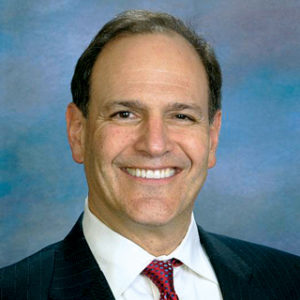
What if there were a common ground among nursing home acquisitions (i.e., a nursing home “acquirer” purchasing a nursing home “target”)?
So often, the “atmosphere” of the targeted nursing home is filled with anxiety. What will happen next? When? With whom? To whom? And on and on.
Unfortunately, too often, the need to merge cultures is overlooked. The reality is that cultures vary between nursing homes, and this is what success hinges on — the ability to successfully merge two cultures and create a new, shared culture for the acquired nursing home. Too often, this effort fails and ends with a “cleaning house” of the acquired nursing home’s individuals as well as institutional memory. What a loss, especially for the residents.
I believe compliance and ethics programs represent that common ground.
I have noticed that the employees of targeted nursing homes often prematurely believe that the acquirer threatens their culture. Yet more often than not, the culture is left untouched for a long time as it is evaluated along with other metrics of the targeted nursing home. Employees have a choice — to continue with their culture and be open to adopting complementary parts of the culture of the acquirer or to reject any changes to the existing culture. My experience has been that those not open to melding the cultures soon find themselves experiencing neither culture because they are out of a job.
A workplace culture becomes the persona of a nursing home. Cultures develop slowly and take a long time to modify. If the acquirer is insensitive to the importance of melding cultures, the target nursing home’s culture could, overnight, be minimized, leading to even more anxiety and uncertainty. Attempts by the acquirer to impose its new rules and procedures — its culture — often are met with resistance because employees of a targeted nursing home are presented with a “take it or leave it” attitude. Ideally, the acquirer recognizes the need to minimize any such imposition and helps to develop a third culture specifically suited for the targeted nursing home.
What if there were common ground to facilitate the merging of the two cultures? Something that all could relate to. Something that pulls everyone together to work in the same direction. That commonality could unify operations post-acquisition.
What if that common ground to build a shared culture was the compliance and ethics program? Both cultures respect and adhere to the same motto of “Do the right thing,” which is the basis for the compliance and ethics program. This could be the common ground for developing a third culture between the acquirer and the targeted nursing home.
To do this, the acquirer must examine, as part of the pre-acquisition due diligence, the targeted nursing home’s compliance and ethics program. Each of the seven elements should be evaluated to ensure they are in place and effective. This then becomes a common ground between all employees.
Presumably, employees with both the acquirer and the targeted nursing home have similar attitudes when attempting to do the right thing. If the acquirer adopts the compliance and ethics program of the targeted nursing home, not only will the employees of the targeted nursing home retain a significant contribution to their culture, but together, all employees can move forward on common ground.
Recognizing the need for a common culture is very timely in the nursing home industry. The market for purchasing nursing homes has not slowed down, despite low occupancy rates and general uncertainty about federal funding. As nursing homes are acquired at a frenzied rate, targeted nursing homes get less time and attention. Many small “mom and pop” nursing homes are selling to large private equity firms because, in our industry, size does matter (e.g., purchasing power).
Culture takes a long time to develop, and small nursing home chains have long cultivated culture. Large private equity firms that buy and sell nursing homes with short-term financial goals are likely not focusing on the culture of the acquired nursing homes but instead on the financials only. All the more reason and importance for a private equity firm to look to the compliance and ethics program of targeted nursing homes as a quick approach to evolve and sustain a third culture after acquisition.
David Barmak, J.D., is CEO of Med-Net Concepts, LLC in Princeton, NJ.
The opinions expressed in McKnight’s Long-Term Care News guest submissions are the author’s and are not necessarily those of McKnight’s Long-Term Care News or its editors.




